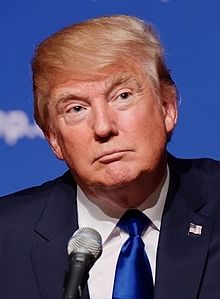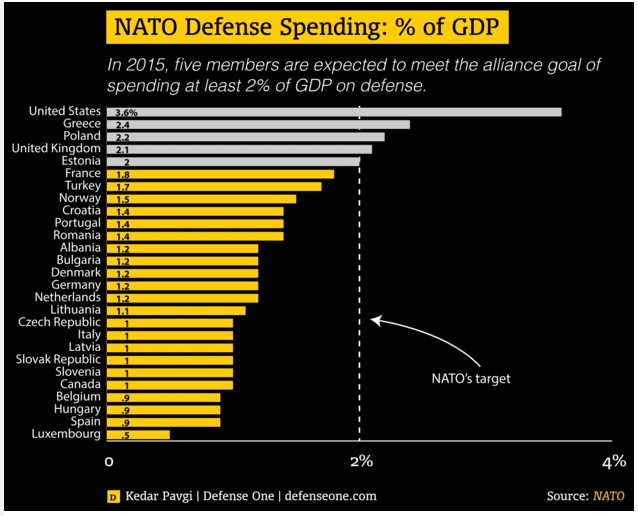Yes! I’m having another go at live-blogging! Stay tuned for updates!
Carson’s opening statement: “we will not solve our problems by attacking each other.”
Kasich: warm and fuzzy statement about America
Rubio: are we a the Party of Reagan, or do we prey on peoples’ anger and fears?
Trump: same statement of “we don’t win anymore as a country.” Borders are Swiss cheese. We are going to start winning again, believe me, it’s going to be a big, big difference.
Immigration: Trump would allow illegals to come back in. Mod: “is that amnesty?” “We either have a country or we don’t have a country.” Some will come back — the best of them.
To Cruz: what’s wrong with letting the good ones come back? Cruz: who’s been forgotten are those Americans who are losing their jobs or seeing their wages driven down. Example of Arizona: tough laws caused illegals to flee; wages grew afterwards, and state welfare spending dropped. I’ve led fight against giving citizenship to those here illegally.
Trump: speaking of Arizona, Sheriff Joe Aripaio endorsed me.
To Rubio: repeats his “before we do anything on immigration, we’re going to secure the border, visa overstays, etc. Then we’ll see what the American people are willing to support.” Then he cites Trump’s statements supporting amnesty in the past, today’s report that Trump hires immigrants rather than Americans at his hotel.
Trump: defending his immigrant hiring, as very seasonal, couldn’t hire Americans. Rubio: no, people were interviewed who wanted those jobs and couldn’t get them.
Cross-talk on Trump’s criticism of Romney about “self-deportation.” Rubio is actually getting into Trump: “you’re the only one who’s been fined for hiring illegal workers.” Trump denies, Rubio says, “people can look it up on google. Tre haump Polish workers.” He had to pay fines. Trump’s defense is “that’s because I’ve hired people in the first place and no one elss.”
Wolf Blitzer to Cruz: what about the U.S. citizen children of deportees? Cruz says, “well, they can come back later” (that is, presumably going back to Mexico w/ Mom & Dad).
Cruz: during Gang of 8, Trump funded.
Oh, I got distracted for a minute. Now Cruz is laying into Trump: “enough with the cronyism, enough with the corruption.” Trump goes back to the claims of Cruz’s sweetheart loan.
Kasich: supports a guest worker program! Whoa! Really? Plus an easy legalization program. A promise of a 100-day agenda here. “Maybe pay a fine, maybe community service.” Carson: also supporting a “guest worker” concept, though it seems like he is considering the legalization as a transformation into guest workers, not a separate, additional guest worker program.
Back to Trump’s wall! Blitzer: everyone in Mexico says “that will never happen.” How are you going to make that happen? The wall is $10 – $12 billion. Mexico will pay for it! (I’m surprised he doesn’t say that a remittance tax will cover it, which I thought was the proposal.) A trade war? Mexico’s taking our jobs — happy to have trade wars.
Oh, now Rubio’s back but he’s only memorized a limited number of attacks. Back to the Polish workers, plus Trump clothing made in Mexico. And Trump’s bankruptcies. And Trump University.
Rubio certainly listened to everyone saying he needed to attack.
This is getting crazy. Trump calls Rubio on a real estate deal. Rubio says (shouts!) that Trump inherited millions.
OK — new topic. The Telemundo moderator (surprised at how heavy her accent is) asks Rubio about his about-face on DACA. Rubio says DACA will be cancelled, no one will be able to renew, and no new applicants. He knows people who are impacted, but it wasn’t presidential authority. And Rubio explains contradiction by saying, “no one gets deported right away, but they will with immediate effect be unable to renew permits.”
This is continuing: Rubio says that his Spanish-language interview was before he was a candidate for President; therefore, he said “DACA will have to end at some point” with more vagueness at that time because he didn’t envision being President and being able to cancel it.
Telemundo woman asks Cruz, “aren’t you missing an opportunity to reach out to Hispanics?” Cruz criticizes media definition that you can only be Hispanic if you’re liberal. Says he got 48% of the Hispanic vote. Hispanic values are faith, family, patriotism.
Rubio: we have to move past this idea that the Hispanic community only cares about immigration. They want their children to do better than themselves.
What’s her name cites the GOP report from after Romney that said the the party needed to implement legalization in order to get Hispanic voters.
Then, to Trump: new poll says 3 of 4 Hispanics don’t like him. Trump: I don’t believe anything Telemundo says. Hispanics know I’m going to bring jobs back. I’m going to bring a lot of people in: independents, Democrats. We are bringing a lot of new people into the Republican Party.
Now she’s really getting into this: Trump won among Republican Hispanic voters, but he’s doing poorly among the general population. Trump just repeats himself: “I will do very will with Hispanics.”
Blitzer: another topic! Yay, finally!
Hugh Hewitt asks about the Supreme Court, to Cruz, do you trust Obama to appoint a justice? Cruz: Democrats bat 1000 in terms of getting justices on the court who vote the way they want them to. (correction: my husband says the question was whether Trump would appoint a reliable judge.) Trump: Cruz supported Roberts, who ended up supporting Obamacare. Cruz then lays into Trump for having supported Democrats in the past.
Now we’re back to Planned Parenthood, and Trump is claiming they help women with cancer. Missed chance for Rubio or Cruz to jump in and say they don’t provide mammograms.
Now we’re into religious liberty, and Kasich saying, “sell to everyone” (ignoring the issue that it’s not simply about products).
Healthcare: Rubio says Trump supports the mandate. Rubio supports refundable tax credits, calls Obamacare a job-killer due to employer mandate producing reductions to part-time status. Trump says, “we’re going to have something better than Obamacare.” “We’re going to keep pre-existing conditions.” Dana Bash says “insurance companies say they need a mandate if they’re going to be able to cover pre-existing conditions.” Trump ignores, goes into cross-state insurance purchasing. Claims that insurance companies wanted the cross-statRubio jumps in: I led the effort to stop the bailout fund. To Trump: what *IS* your plan, besides getting rid of cross-state restrictions? Trump: that’ll be enough, because it’ll bring competition. Audience is cheering but I can’t tell if they’re pro-Trump or if this is jeering at him, and supporting Rubio’s exasperation. Rubio now lays into Trump some more: all I can here is, something like, “all he says is ‘we’re going to win, win, win!'” Bash says to Trump, “is there anything you want to add?” Trump: “No!”e restrictions, “insurance companies are making an absolute fortune” — but that’s not correct.
Kasich — has some kind of plan, but I’m not sure what it is. Now he’s being asked about the individual mandate, and his 1994 support: now he says it’s not feasible.
Carson: “health empowerment accounts” – not sure what he’s talking about except some variant on vouchers/credits, and a high-deductible plan. Now they’re getting really impatient and keep dinging the bell. “Let me just finish, ’cause I don’t get to talk that much.”
Cruz now wants to talk about Obamacare, and Blitzer lets him. Cruz: “I want to end Obamacare because it goes too far and kills jobs; Trump wants to end it because he thinks it doesn’t go far enough. He has a long history of supporting socialized medicine.”
Time for a break! What happened to commercials?
This is an immensely entertaining debate, and I’m about to the point where I have to get up and go pick my son up from driver’s ed.
Cruz pushes Trump to explain his plan: “It’s going to be private healthcare, but I am not going to allow anyone to die in the streets.” Cruz: who’s going to pay for it? Now, everyone’s just arguing!
Blitzer is desperate to get them to agree to move on. Taxes: Trump has a tax cut plan with high levels of cuts (didn’t know this!). How will he afford this? Economic growth, of course! “We will do my tax plan and it will be great.” What will you cut? Dept of education. common core. We waste money on environment protection. Blizer says that gets to 76 billion in savings. That’s not enough. Trump: waste, fraud and abuse. “We will cut so much your head will spin.” How can anyone believe him?
(here my husband took over while I ran out)
Kasich makes sense on the economy. Unfortunately, he has no chance.
On Romney’s ask for tax returns. Are accusations true? I filed statements as the first one; you learn nothing from tax returns. Filing late cost Romney “biggly”. The delay is due to him being audited right now.
Do you ask me every question? That’s ridiculous. Also: “The good news is that very few people listen to your radio show, Hugh.”
Rubio: I’ll release my tax returns tomorrow or Saturday. Nothing ineresting in there; and no audit.
Cruz: I’ll release my tax returns tomorrow; Trump being audited is a red flag.
Trump on not being liked “well, I win in the polls, can’t be that bad.”
Cruz going after Trump University. And on other issues. Trying his longest string of attacks yet.
(now I’m back)
Commercial break over. Foreign policy and national security.
To Trump: you said, “let me be a neutral guy.” how do you remain neutral when Israel is an ally? Trump: as President, there’s nothing I’d rather do than bring peace, and I think it serves no value to identify good guys and bad guys, and start demeaning the neighbors.” As a negotiator, I can’t do that if I take sides, but I am totally pro-Israel.
Cruz: I disagree with Donald and Clinton — they both want to be “neutral.” The notion of neutrality is based on “moral equivalence” but there is no moral equivalence between suicide bombers and their victims. I have led the fight to defend Israel.
Trump: I’ve been a big contributor to Israel over the years.
Kasich: I was in Congress for 18 years, on the Defense committee. The problem in foreign policy is that our allies and our enemies don’t know what we stand for. Even just now, something something North Korea (some news item that I missed).
Rubio: Trump’s position is an anti-Israel position because the Palestinians are not honest peace partners. I will be on Israel’s side every single day because they are the only pro-American democracy in the Middle East.
Trump: I am a negotiator, Marco is not. Rubio: foreign policy is not a real estate deal. More arguing. Trump goes back into making assertion after assertion.
Blitzer, onto North Korea. Kasich has supported regime change in North Korea. Would you risk war for regime change? If there was an opportunity to remove the leader. . . but I’m aware of the issues. Perhaps the Chinese can accomplish this. Weak answer.
Trump: $19 T in debt, we can no longer defend all of these countries — Japan, Germany, Korea. We have to start getting reimbursed for defending these countries. They’re selling us TVs, Mercedes.
Kasich: whoa, we are the leader of the world, we need to rebuild the military, but also reform the Pentagon’s bureaucracy.
Blitzer to Carson: how would you deal with North Korea? Oh, great. Now he’s whining about not getting called on. He wanted to say something about taxes, so he’s going to talk about taxes instead, and how he was never audited until after he spoke at the Prayer Breakfast. blah blah blah, I’m not paying attention. Let’s check the twitter feed while waiting for him to finish.
Hugh Hewitt: do you support the Syrian cease fire? Trump: it’s meaningless because no one’s adhering to it. Cruz: also skeptical. Russia’s position is strengthening b/c of Obama’s weaknesses. Problem with Rubio & Trump: both of them supported Obama’s policies, e.g., supporting regime change in Libya.
Rubio defends support of regime change: it was going to happen, if we helped, a chance of a better outcome.
I’m getting tired. More attacks: Trump bring up Cruz in Iowa, the “voter violation” and the “Carson’s dropping out” bit.
Rubio defends the FBI’s demand for Apple to comply with the court order; not a requirement to put a back door in, just a disabling of the “self-destruct” mode. Cruz agrees with Rubio here.
Q to Trump: why does Mexico need a border but Canada doesn’t? Simply not needed there and a much longer border so much harder to do. Segues into heroin in New Hampshire.
Q to Rubio on Puerto Rico: how do you explain your bankruptcy stance? Problem is it won’t solve anything. Economy isn’t growing; spending’s too high, regulation’s too high. Government has to get that in order first, then we can talk. Shouldn’t be a “first resort.”
Closing statements! Which are tiring so I’m not summarizing them.
Bottom line:
well, I wish that Carson and Kasich weren’t there; they really just distracted from the three-man main event. But Cruz and Rubio certainly listened to advisors and/or pundits who spent the entire day saying that they needed to attack Trump aggressively. I think the attacks were effective, for the most part, but, at the same time — you watch Trump repeating nothing other than “we will do this, and we will do that, and it’ll be great.” And you think, “how on earth can so many people be taken in by Trump?” Are the Trump supporters simply not watching the debates?
So there you go. A very long summary, typed in real time.
Did you watch? What did you see?
UPDATE: Reader Richard Perry says in the comments:
As aggressive as Rubio and Cruz were, they failed to tap into why Trump is clobbering them… There are a LOT of angry, upset Americans. Jobs are going overseas or immigrants are flooding the job market. The Middle East is a mess. People are tired of the Washington status quo. Cruz and Rubio offer nothing different. No matter what Trump’s positions are on the issues, he is an outsider and many voters see him as the only candidate that can shake things up in Washington….
I think that the Cruz/Rubio duo tried, at times, to do this, with Cruz justifying his “deport them all” stance with reference to Americans hurt by job loss/wage cuts, and Rubio pointing to Trump hiring guest workers for jobs Americans wanted, as proof that Trump’s just bluster. But did either of them get out a core message of “Trump is full of bluster but nothing more”? Did either of them communicate as a core message, “I want to help those who have been left behind”? Not so much.
![https://commons.wikimedia.org/wiki/File%3APackage_of_Lutera_Birth_Control_Pills.jpg; By ParentingPatch (Own work) [CC BY-SA 3.0 (http://creativecommons.org/licenses/by-sa/3.0)], via Wikimedia Commons](https://wp-media.patheos.com/blogs/sites/533/2016/12/800px-Package_of_Lutera_Birth_Control_Pills.jpg)




![https://commons.wikimedia.org/wiki/File%3AKim_Kardashian_2%2C_2012.jpg; Eva Rinaldi [CC BY-SA 2.0 (http://creativecommons.org/licenses/by-sa/2.0)], via Wikimedia Commons](https://wp-media.patheos.com/blogs/sites/533/2016/10/409px-Kim_Kardashian_2_2012.jpg)





![https://commons.wikimedia.org/wiki/File%3AOperation_Upshot-Knothole_-_Badger_001.jpg; By Photo courtesy of National Nuclear Security Administration / Nevada Site Office [Public domain], via Wikimedia Commons](https://wp-media.patheos.com/blogs/sites/533/2016/06/Operation_Upshot-Knothole_-_Badger_001-1024x870.jpg)

![https://commons.wikimedia.org/wiki/File%3A%22Fat_Man%22_Nuclear_Bomb_Mockup_-_Flickr_-_euthman.jpg; By Ed Uthman from Houston, TX, USA ("Fat Man" Nuclear Bomb Mockup) [CC BY 2.0 (http://creativecommons.org/licenses/by/2.0)], via Wikimedia Commons](https://wp-media.patheos.com/blogs/sites/533/2016/05/800px-Fat_Man-_Nuclear_Bomb_Mockup_-_Flickr_-_euthman-1.jpg)









